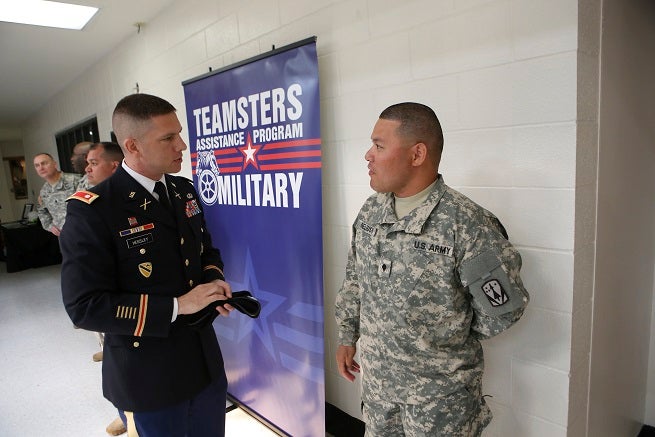Uncategorized
Public-Private Partnerships Could Help Better Prepare Workers

The Teamsters have long advocated for better job training programs, and have backed that up by proactively teaching people skills needed to help them get good-paying jobs.
In September 2015, for example, the U.S. Department of Labor awarded the union a five-year, $4.6 million grant to establish apprenticeship programs in the trucking industry. The Teamsters are partnering with ABC Moving Services, ABF Freight, DiSilva Transportation and National Retail Systems to improve truck driver training.
But that has not happened in all industries. While the federal government has its own training programs, some question their quality. Meanwhile, too many employers insist they don’t have the funding to provide quality vocation education opportunities on their own.
But a new Aspen Institute report says expanding private-public partnership opportunities could be the answer. Called “paid for performance,” it’s not just a retraining policy, as The Atlantic points out. “It’s an investment policy. By training workers, businesses are essentially buying a small equity stake in their future wages. If their wages rise, the company gets money, while the worker gives up nothing, purely benefiting from the training program.”
In an era where workers are increasingly competing globally, more needs to be done to get everyday Americans up to speed. But a college degree is not the answer for all people. There is a need to boost vocational training for the U.S. population at large. A report by the Organization for Economic Cooperation and Development found that by 2018, a third of all jobs in this country will require post-secondary training but not a four-year degree. Yet as it stands, less than 20 percent of the workforce has vocational certification.
In short, we have a skilled worker shortage. It should be the goal of lawmakers across the political spectrum to encourage youth not pursuing post-secondary academic studies to obtain training in a skill area that will provide them with the opportunity to earn a living wage and a career track that will ultimately give them a path to the middle class.